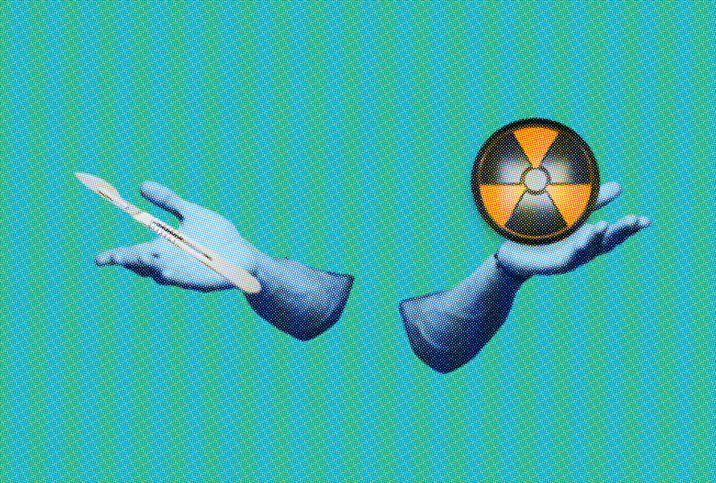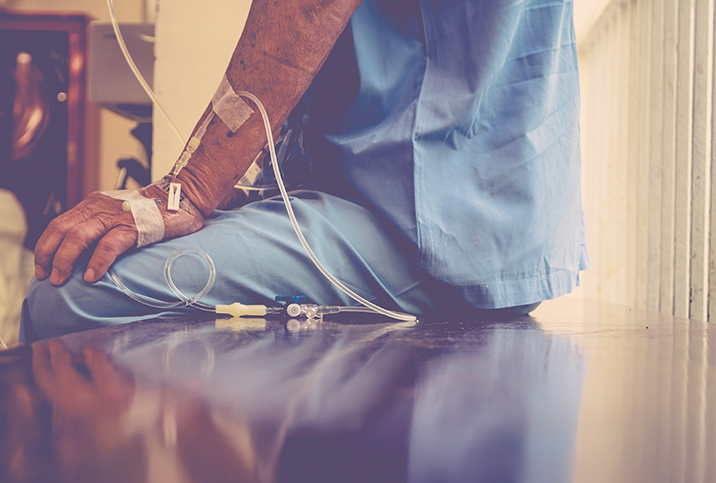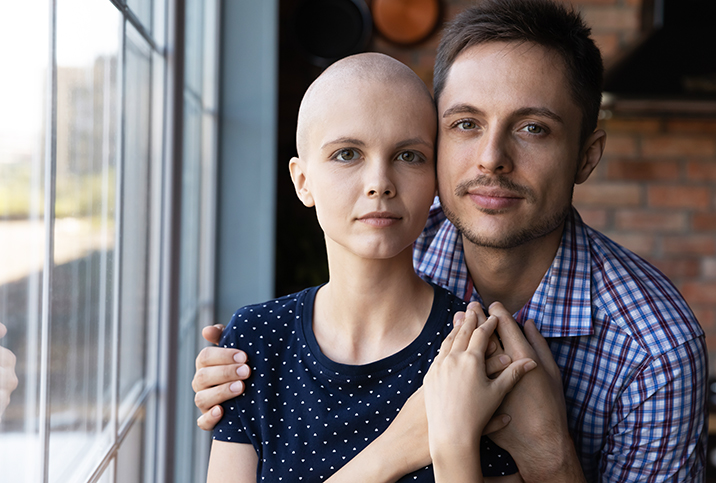Radiation Treatment Side Effects Can Reach Your Rectum

Radiation treatment for various cancers has improved over the years. It's more targeted, more individualized and less damaging. Although radiation treatment can be a lifesaver for some cancer patients, it unfortunately sometimes comes with unpleasant side effects/risks, such as radiation proctitis, when administered in the pelvis.
Radiation proctitis refers to a specific iteration of proctitis, which generally refers to inflammation of the rectal lining. Symptoms experienced by patients who get radiation proctitis are nonspecific, as symptoms can feel similar to other causes/known factors that cause inflammation in this region.
"We do sometimes see it with some of our prostate cancer patients that got radiation," said Nirmish Singla, M.D., M.Sc., a urologic oncologist in Baltimore. "It used to be a little more common as a side effect, but in more recent years, radiation has become more precise with less collateral damage to the rectum, and so as a result, we tend to see less of it now than once upon a time."
'The chance of developing significant proctitis is much lower in the modern era of more precise radiation than it had been in the past.'
Singla most commonly sees prostate cancer patients develop radiation proctitis, but it's not particularly common even among these patients.
"As far as urologic patients that have radiation in the pelvis, the most common would be our prostate cancer population," said Singla, who is also the director of translational research in genital-urinary oncology at the Brady Urological Institute at Johns Hopkins Medicine. "A very limited subset of bladder cancer patients may also get radiation, as well, but in terms of longer-term experience, it's mostly in the prostate cancer world."
The reasoning for using radiation-based cancer treatment in the pelvic area differs on a case-by-case basis. But there are scenarios in which radiation treatment can be lifesaving and significantly improve the patient's quality of life.
Singla describes two scenarios where primary radiation treatment for prostate cancer is often performed: patients who opt to forgo surgery and patients who have local recurrence after surgical treatment (salvage radiation).
The role of radiation oncology
A lot of technique, expertise and collective scientific knowledge goes into strategizing the use of radiation treatments, said Amar U. Kishan, M.D., a radiation oncologist at the David Geffen School of Medicine at the University of California, Los Angeles.
"We do our best with modern technology to really limit the dose, and the chance of developing significant proctitis is much lower in the modern era of more precise radiation than it had been in the past," he said.
Kishan, who is also the chief of the genitourinary oncology service for the Department of Radiation Oncology at the David Geffen School, said any cancer treatment carries certain risks, and potentially lifesaving treatment that uses radiation may unintentionally affect nearby regions of the body.
"We know when treating cancers in the pelvis area—for example, the main thing that I treat is prostate cancer, but it would be true with treating cervical cancer, uterine cancer or bladder cancer—there's going to be some dose of radiation that goes to the rectum," he said.
Inflammation, as a result of exposure to radiation, can occur and cause proctitis both in the short term, which can be fairly common, and in the long term in a delayed sense—the effects are felt years later—which is not nearly as common and not always easy to associate directly with the radiation treatment as opposed to other potential factors.
Symptoms of proctitis and oncological follow-up
Proctitis symptoms tend to be fairly characteristic of inflammation-based conditions. In some cases, patients may experience pain and discharge or bleeding from the rectal area. A person may also experience cramps or diarrhea.
Patients should not be surprised by such outcomes, as this will be discussed during the radiation treatment screening process as well as measures that will be taken to mitigate these side effects. Also, the radiation oncologist—who, it should be noted, is a physician—will follow up with the patient after treatment to address all patient concerns and discuss treatment outcomes.
"In many cases, we are the ones who are following the patient," Kishan said. "We follow them for a long time. Now, after five years, if someone hasn't had a recurrence of their cancer, we can say they're cured."
During that five-year window Kishan noted, multiple specializations may be necessary to draw upon when different health issues come up after radiation and/or other cancer treatments. Sexual health, for example, isn't necessarily a day-to-day concern during cancer recovery, but doctors are always happy to collaborate with one another to solve the problems of a patient.
"If a patient has an issue, I refer them, but we don't necessarily have somebody longitudinally follow with them from the get-go," Kishan said. "If it's something that I can manage, I would manage it. But if not, I would refer them back to the sexual health expert."
Erectile dysfunction (ED), for example, is a commonly known side effect of radiation treatment, as well as a reality for many people recovering from cancer or procedures such as surgery or chemotherapy. So radiation oncologists are not unfamiliar with the process of collaboration on these issues.
Treating radiation inflammation
The treatment options for radiation proctitis aren't very severe, and simple changes can make a significant difference.
"For the more mild cases, sometimes we try a short course of steroid suppositories or steroid creams, similar to hemorrhoid treatment creams that can sometimes ease inflammation in that area," Kishan said. "There can be dietary changes that can be helpful. Some patients benefit from doing what's called probiotic yogurt supplementation."
General cases of proctitis can heal on their own. But when doctors determine the condition to be radiation-based or for other reasons, they may prescribe medication in the form of pills or suppositories to help control inflammation, loosen stools and/or mitigate symptoms such as bleeding or discomfort.
"There can also be enemas that can be helpful that basically contain some healing substances that can help address some of the damage to the rectum," Kishan said.
Some simple and widely recommended lifestyle choices, such as incorporating a high fiber diet, can also minimize the effects of inflammation resulting from cancer treatment.
Some unpleasant side effects exist, such as proctitis with radiation therapy, but this treatment modality continues to be refined to better target cancers to mitigate such issues and continue to save lives.


















